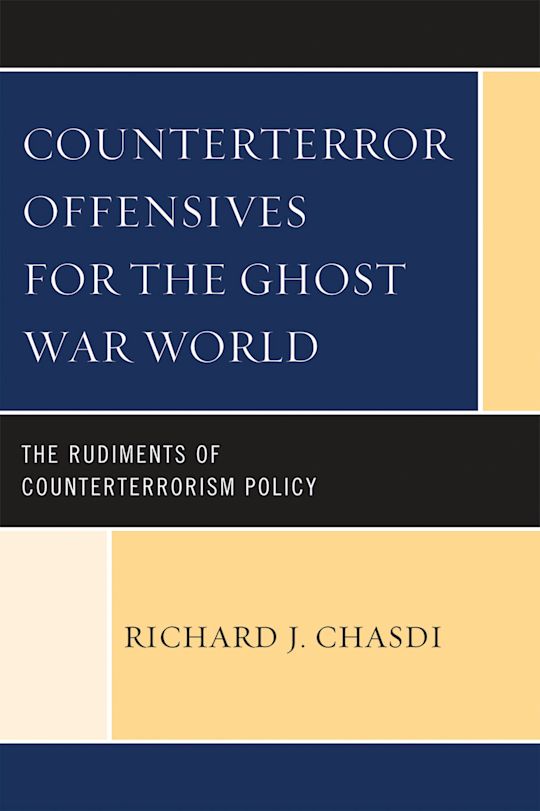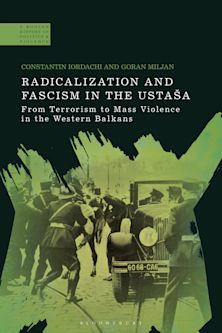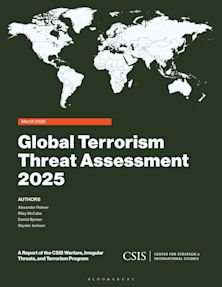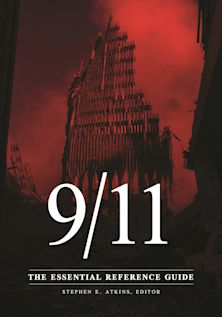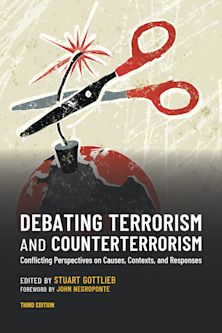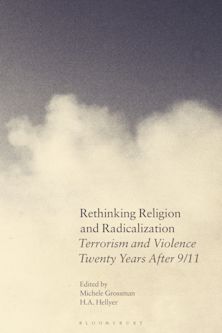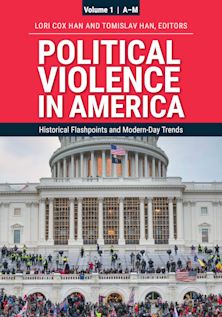- Home
- ACADEMIC
- Politics & International Relations
- Terrorism and Political Violence
- Counterterror Offensives for the Ghost War World
Counterterror Offensives for the Ghost War World
The Rudiments of Counterterrorism Policy
Counterterror Offensives for the Ghost War World
The Rudiments of Counterterrorism Policy
This product is usually dispatched within 10-14 days
- Delivery and returns info
-
Free UK delivery on orders £30 or over
You must sign in to add this item to your wishlist. Please sign in or create an account
Description
In Counterterror Offensives for the Ghost War World: The Rudiments of Counterterrorism Policy, Richard J. Chasdi has written a groundbreaking quantitative analysis that provides new insight into which types of counterterror practices work best and which types perform poorly in particular operational environments and circumstances. For Chasdi, "effectiveness" is defined as the capacity of counterterror practices to work with "stealth"-namely, without eliciting high amounts of related follow-up terrorist assaults. He moves beyond individual country analyses to tackle an analysis of counterterror practice effectiveness based on the type of political system of the country carrying out counterterror offensives and the power level of that country within the international political system. Chasdi furthermore provides essential qualitative descriptions of national security institutions, stakeholders, and processes to frame his quantitative results in ways that tie those findings to historical and contemporary political developments.
Table of Contents
Chapter 2 Chapter 1-An Introduction to Counterterror Concepts and Methods
Chapter 3 Chapter 2-The Contours of Counterterror Practices: Approaches and Actions, What is Known and Gaps in Knowledge, a Functional Typology of Counterterror Events
Chapter 4 Chapter 3-Theoretical Conceptualizations and Methodology
Chapter 5 Chapter 4-The Case of Counterterror in Western Style Liberal Democracies: Basic Contours of the Counterterror Practices of Four Nation-States
Chapter 6 Chapter 5-The Case of Counterterror in Authoritarian Democracies and an Authoritarian Regime: Basic Contours of the Counterterror Practices of Three Nation-States
Chapter 7 Chapter 6-Analysis of the Effects of Two Structural Explanatory Factors on Counterterror Event Outcomes
Chapter 8 Chapter 7-Conclusions
Chapter 9 Methodological Appendices
Product details
| Published | 06 Jul 2010 |
|---|---|
| Format | Hardback |
| Edition | 1st |
| Extent | 908 |
| ISBN | 9780739107942 |
| Imprint | Lexington Books |
| Dimensions | 240 x 163 mm |
| Publisher | Bloomsbury Publishing |
About the contributors
Reviews
-
Dr. Richard J. Chasdi’s most recent book, Counterterror Offensives for the Ghost World War, provides a historical and analytical look at patterns, relationships, and effectiveness in counterterror practice. Chasdi’s well-researched, 877-page effort provides several significant theoretical and analytical contributions. Bottom line: the text is both a good read and reference. ... Counterterror provides an excellent basis for analysis and is in itself a sufficient reason to read this text. ... Counterterror provides a deluge of descriptive and inferential statistics in the form of frequency tables, bar graphs, contingency table analysis, and negative binomial regression models. The vast majority of the book is dedicated to the presentation and discussion of these results, making it mostly a quantitative contribution. ... In balance, Dr. Chasdi provides three major contributions in Counterterror. He provides a conceptual framework that makes sense. He provides detailed statistical analysis that is useful to both modeling and understanding counterterror considerations. And he provides reasonable analysis of interactions and relationships among factors. In balance, the text is a worthwhile read and reference.
Armed Forces & Society
-
Richard J. Chasdi’s Counterterror Offensives for the Ghost War World is an intense read....It should serve to generate further research in striving to produce a metrics that benefits U.S. foreign policy and counterterrorism strategies in future environments by having studied a range of past efforts. To this end, Chasdi must be commended.
Democracy and Security
-
Chasdi's work deserves praise and it is up to others to offer similarly detailed data-based accounts of post-9/11 counterterrorism practices. It is indeed striking that one decade since 9/11, this is still one of the first genuine empirical attempts to figure what 'works' in the fight against terrorism.
E-Extreme
-
Rigorous measurement of the effectiveness of counter-terrorist measures has so far been elusive. No longer—thanks to Professor Chasdi's innovative empirical study, we now know what works and what doesn't. A remarkable breakthrough with profound policy implications.
Alex P. Schmid, Terrorism Research Initiative, Vienna
-
Chasdi's book identifies critical issues for consideration and provides previously unavailable empirical support for integrated counterterrorist policy initiatives. It is full of unexpected insights regarding the success of less aggressive counterterrorist actions, the importance of context-specific explanatory factors in different operational environments, and the broader link between political reform and collaborative counterterror policy efforts. Policy makers should heed his advice on the importance of tailoring counterterrorist policies to the specific geographical locations at issue.
Richard Weitz, Center for Political-Military Analysis, Hudson Institute









